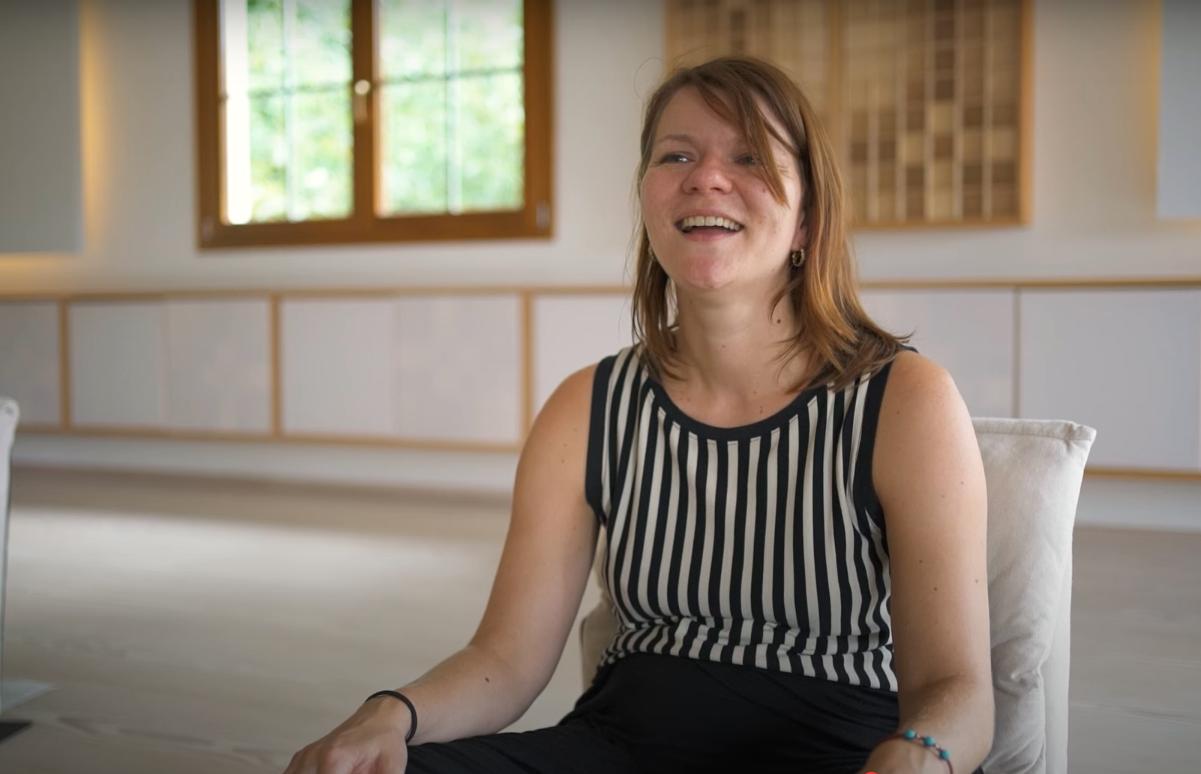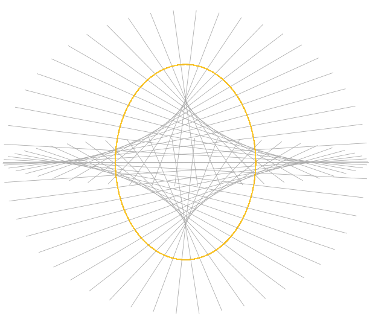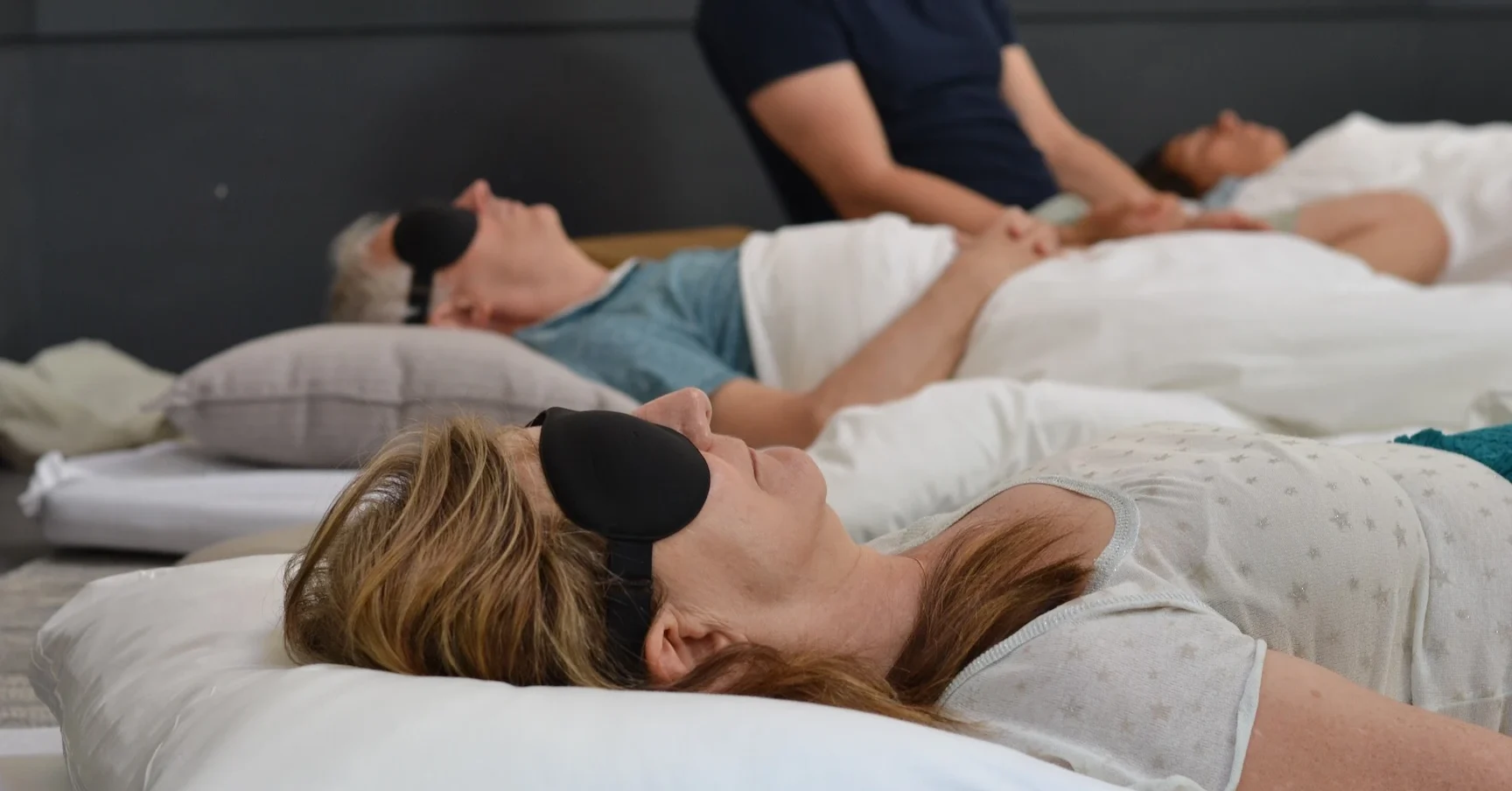Francisca Niklitschek
Francisca Niklitschek
Contributing Authors
Dmitrij Achelrod PhD
Why a Darkness Retreat Might Change Your Life?
Imagine a space where time ceases to exist, where the outside world fades into oblivion, and where you are left with nothing but the profound silence of your own thoughts. This is the essence of a darkness retreat—a unique journey into the depths of your consciousness, offering a window of opportunity for personal transformation and self-discovery. But what drives us to seek out such an experience, and what profound changes can it bring about?
Darkness retreats are immersive experiences where participants spend extended periods in complete darkness, absent of external stimuli. This sensory deprivation allows us to turn inward, exploring the uncharted territories of our minds. The concept may seem daunting at first—after all, aren’t we all inherently afraid of the dark? Yet, it is within this very darkness that many have found the light of insight and transformation.
Throughout history, darkness has been a symbol of both fear and introspection, a duality that remains at the heart of these retreats. As we delve into this exploration, we will uncover how darkness retreats can act as a catalyst for profound personal growth. By embracing the unknown and confronting our inner shadows, we open the door to a journey that is as enlightening as it is transformative.
Join us as we embark on this journey from darkness to light, exploring how these self-exploration retreats can foster profound transformation. Can the absence of light truly illuminate the path to inner growth? Let’s find out.
What Are Darkness Retreats?
Darkness retreats are immersive experiences designed to strip away the distractions of the external world, allowing individuals to journey inward. Participants enter a secluded environment that is completely devoid of light. In this unique setting, the absence of visual stimuli encourages a heightened awareness of one’s inner landscape, fostering deep introspection and reflection. For many, it becomes an opportunity to confront and understand their fears, desires, and aspirations without the usual interference of daily life.
These retreats are not just about the absence of light; they are about creating a space where one can explore the depths of their consciousness. The concept is rooted in ancient practices, where darkness was often used as a tool for spiritual growth and enlightenment. In contemporary times, darkness retreats have gained popularity among those seeking to experience altered states of consciousness as a means of personal development. By temporarily disconnecting from the outside world, participants report profound insights and a renewed sense of clarity and purpose.
EvoDARK – the world’s first group darkness retreat offers a structured and supportive environment to explore this profound experience. For an inside look at what our journey entails, watch our short darkness retreat documentary, which beautifully captures the heart of the EvoDARK experience.
If you’re curious to learn more about Darkness Retreats, we invite you to read our article Darkness Retreats: A Tool for Personal Transformation, which offers a clear and insightful explanation of this unique experience.
Self-Discovery Through Darkness
Stepping into complete darkness may seem unsettling at first, but it is precisely this absence of light that creates the conditions for profound inner exploration. When visual stimuli disappear, the mind initially struggles to adjust—grappling with the absence of familiar cues. However, this initial discomfort is often a gateway to deeper introspection. Without the distractions of the outside world, the mind begins to attune to the subtle nuances of thought and feeling, paving the way for self-discovery.
As the retreat progresses, many participants report experiencing a “lightness” of being that emerges from within. This is not a physical light, but rather a metaphorical illumination—a profound clarity and understanding of one’s inner world. It is in this space that individuals often find the insights and revelations they seek, gaining a new perspective on their lives and their place in the world. The journey from darkness to light is a transformative process, one that encourages individuals to embrace vulnerability and openness.

This process of self-discovery is not just about uncovering what lies beneath the surface; it is about embracing the full spectrum of one’s identity. The retreat environment encourages individuals to confront their fears, desires, and dreams, fostering an authentic connection with the self. This chapter will explore how the interplay of darkness and introspection can lead to profound self-awareness and growth, setting the stage for meaningful transformation.
Facing Inner Fears and Emotions
One of the most transformative aspects of a darkness retreat is the opportunity to confront and process inner fears and emotions. In the absence of light, participants are often faced with the raw and unfiltered presence of their own thoughts and feelings and in the safe confines of the retreat, you are encouraged to face these emotions head-on, gaining insight into their origins and effects in your life.
Lara, a participant in EvoDARK, shared how the darkness allowed her to encounter deeply rooted emotions:
“In the darkness, I found that I met a few of my constant companions. Without judgment—good or bad—there was always some judgment with me, some regrets, and some fear.” – Lara, EvoDARK participant

As participants delve deeper into their consciousness they often uncover fears that have been subconsciously influencing their behavior and decision-making. By acknowledging and understanding these fears, individuals can begin to dismantle the barriers that have been holding them back.
Cultivating Self-Awareness and Insight
In the serene embrace of darkness, self-awareness emerges as a guiding light, illuminating the path to personal insight. The insights gained during a darkness retreat can serve as a catalyst for meaningful change, empowering individuals to live more authentically and intentionally.
Participants often find themselves gaining new perspectives on past experiences, relationships, and personal challenges. This process of reflection can lead to profound realizations, helping individuals make sense of their life’s journey and align more closely with their true values and aspirations.
“But there was also a lot of love and compassion, which seemed to unite them all. Once I accepted that these feelings exist, that they serve a purpose, and that I could even talk to them—it was really powerful. I felt like I had companions with me throughout the experience.”– Lara, EvoDARK participant
This courageous confrontation of inner emotions doesn’t just build emotional resilience—it teaches participants that vulnerability is not a weakness, but a portal to deep personal growth. For those interested in exploring how facing fears can lead to personal growth, our discussion on addressing trauma and reconnection offers valuable insights into this transformative journey.
Embracing Change and Personal Growth
The journey through a darkness retreat often culminates in a profound readiness to embrace change and foster personal growth. As participants emerge from the retreat environment, they carry with them the insights and self-awareness gained during their time in darkness. This newfound clarity can inspire a willingness to make transformative changes in one’s life, whether it involves altering habits, redefining goals, or nurturing relationships. The retreat serves as a catalyst, encouraging individuals to step out of their comfort zones and pursue growth with renewed vigor.
Embracing change is not always easy, but the experiences and revelations from a darkness retreat provide a solid foundation for navigating this process. Participants often find themselves more open to exploring new possibilities and more resilient in the face of challenges.
Stefan, another EvoDARK participant, described the profound impact the retreat had on his well-being:
“Just my nervous system and my body recovered. It felt like a deep, deep recovery of my physical body, and I think I will never forget this feeling… I think I hadn’t experienced it before, and I’d been searching for it for many years.” – Stefan, EvoDARK participant

The Power of Sensory Deprivation
At the heart of darkness retreats lies the practice of sensory deprivation, a technique that has been used for centuries to foster deep states of meditation and self-reflection. By eliminating visual and auditory stimuli, participants are able to turn their attention inward, exploring the intricacies of their own minds. This absence of external input allows the brain to shift its focus from processing the outside world to delving into the internal landscape of thoughts, emotions, and memories. The psychological benefits of this practice can be profound, offering a unique opportunity for deep inner work.
Sensory deprivation in darkness retreats can lead to a heightened state of awareness and mindfulness, as the mind becomes more attuned to the subtle signals of the body and psyche. This increased mindfulness can result in a greater understanding of one’s emotional patterns and cognitive processes, promoting mental clarity and emotional resilience.

What Happens in the Brain during Sensory Deprivation?
Let’s explore the research behind the benefits of sensory deprivation and how it supports deep psychological and physiological transformation.
- Stress Reduction and Relaxation: Research suggests sensory deprivation can significantly reduce stress by lowering cortisol levels and blood pressure. A study cited by Medical News Today showed significant decreases in cardiovascular changes compared to watching a relaxing nature film, indicating a calming effect [1] . WellWay notes that Dry Float Therapy (another kind of sensory deprivation) reduces stimulus to the nervous system by 70-75%, creating a drop in stimulus more significant than sleeping, which balances out detrimental stressors and makes individuals more resilient to stress [2]. This can lead to physical relaxation, reduced muscle tension, and fewer headaches, as mentioned by Practical Psychology [3].
- Mental Health Improvements: It seems likely that sensory deprivation can improve mental health, with reports of reduced anxiety and depression symptoms. A study involving 50 people found improvements after a 1-hour float session, with more severe anxiety cases seeing significant benefits [4]. Happiful mentions that time can lower cortisol and increase endorphins, boosting mood, and some report feelings of inner peace and euphoria [5]. Practical Psychology also notes increased mindfulness, fostering a sense of optimism or “inner peace,” which can be therapeutic for mental well-being [3].
- Cognitive Enhancements: The evidence leans toward sensory deprivation enhancing cognitive functions, particularly creativity and problem-solving. Five studies from 1987–2011 suggest boosts in technical musical ability, originality, and divergent thinking, though a preprint review notes it may reduce problem-solving creativity, indicating mixed results [6][7]. Practical Psychology highlights that by reducing distractions, it allows the brain to think “outside of the box,” enhancing mental clarity and focus [3].
- Physical Health Benefits: Sensory deprivation may improve physical health, with reports of better sleep quality and pain reduction. A 2021 trial with 99 people saw short-term reductions in pain intensity and the number of body areas in pain after five sessions, though long-term benefits for chronic pain were undetectable after a week [8]. A 2020 review of 9 studies found promising potential for sleep [9]. Practical Psychology mentions improved cardiovascular health, reduced muscle pain, and fewer headaches [3].
After reviewing the research, it’s clear that sensory deprivation has a wide range of psychological and physiological effects. From easing stress to enhancing cognitive performance, the benefits are compelling. Below is a summary of the key findings:
Category | Benefits |
Stress/Relaxation | Lowered cortisol, reduced blood pressure, physical relaxation, reduced muscle tension |
Mental Health | Reduced anxiety/depression, improved mood, increased mindfulness, inner peace |
Cognitive | Enhanced creativity, problem-solving, mental clarity, divergent thinking |
Physical Health | Better sleep, pain reduction, cardiovascular improvements, hormone balance |
Sustaining Personal Transformation
The true power of a darkness retreat lies not just in the revelations experienced during the retreat, but in the ability to apply these insights to everyday challenges. As participants transition back into their daily routines, they are often faced with the same obstacles and stressors that existed before the retreat. However, armed with newfound clarity and understanding, they are better equipped to navigate these challenges with a fresh perspective. The insights gained in the sanctuary of darkness can serve as a guiding light, helping individuals approach problems with creativity and resilience.

Sustaining the personal transformation initiated during a darkness retreat is an ongoing journey, one that requires dedication and a proactive approach to self-growth. The profound shifts in perspective and understanding achieved in the retreat can serve as a solid foundation for continuous development. However, the key to sustaining these changes lies in the establishment of consistent practices that reinforce the retreat’s insights. Daily rituals such as meditation, mindfulness exercises, and reflective journaling can help maintain the clarity and focus gained during the retreat, ensuring that the transformation becomes an integral part of one’s life.
Moreover, community support can play a significant role in sustaining personal transformation. Engaging with like-minded individuals who share similar goals and experiences can provide encouragement and motivation to stay committed to one’s path. At Evolute Institute, we offer more than just retreats—we provide a supportive space to build meaningful connections, share insights, and grow alongside a conscious community of individuals dedicated to inner work and personal evolution.
Conclusion
In a world that often prioritizes external achievement over inner growth, darkness retreats offer a unique opportunity to reconnect with one’s true self and cultivate a life of authenticity and fulfillment. If you’re ready to embrace your shadows and find your inner light, we invite you to take the next step with EvoDARK – the world’s first group darkness retreat at Evolute Institute.
Bibliography
[1] ‘Sensory deprivation tank benefits: Effects and risks’. Accessed: Apr. 22, 2025. [Online]. Available: https://www.medicalnewstoday.com/articles/sensory-deprivation-tank-benefits
[2] C. Stenehjem, ‘The Health Benefits of Sensory Deprivation’, WellWay. Accessed: Apr. 22, 2025. [Online]. Available: https://wellway.com/the-health-benefits-of-sensory-deprivation/
[3] P. Psychology, ‘Sensory Deprivation’, Practical Psychology. Accessed: Apr. 22, 2025. [Online]. Available: https://practicalpie.com/sensory-deprivation/
[4] J. S. Feinstein et al., ‘Examining the short-term anxiolytic and antidepressant effect of Floatation-REST’, PLoS ONE, vol. 13, no. 2, p. e0190292, Feb. 2018, doi: 10.1371/journal.pone.0190292.
[5] ‘What is sensory deprivation?’ Accessed: Apr. 22, 2025. [Online]. Available: https://happiful.com/what-is-sensory-deprivation
[6] ‘Sensory deprivation tank benefits: Effects and risks’. Accessed: Apr. 22, 2025. [Online]. Available: https://www.medicalnewstoday.com/articles/sensory-deprivation-tank-benefits
[7] E. Lashgari, E. Chen, J. Gregory, and U. Maoz, ‘A systematic review of Flotation-Restricted Environmental Stimulation Therapy (REST)’, Nov. 30, 2023, medRxiv. doi: 10.1101/2023.11.29.23299203.
[8] L. F. Loose, J. Manuel, M. Karst, L. K. Schmidt, and F. Beissner, ‘Flotation Restricted Environmental Stimulation Therapy for Chronic Pain’, JAMA Netw. Open, vol. 4, no. 5, p. e219627, May 2021, doi: 10.1001/jamanetworkopen.2021.9627.
[9] A. Kjellgren, A. Norell-Clarke, K. Jonsson, and M. Tillfors, ‘Does flotation-rest (restricted environmental stimulation technique) have an effect on sleep?’, Eur. J. Integr. Med., vol. 33, p. 101047, Jan. 2020, doi: 10.1016/j.eujim.2019.101047.
FREQUENTLY ASKED QUESTIONS (FAQ)
A darkness retreat is a wellness practice where participants spend several days in complete darkness to promote deep inner reflection and healing. Without visual distractions, the mind turns inward, often resulting in heightened awareness, emotional clarity, and personal transformation. Modern retreats, like EvoDARK at Evolute Institute, offer a safe and guided environment for this experience.
Participants often report reduced stress, improved mental clarity, emotional healing, and increased mindfulness. The retreat helps reset the nervous system, supports trauma processing, and may foster insights into life purpose and unresolved issues—all without external substances.
Scientific research supports the benefits of sensory deprivation, showing reductions in stress, improvements in mental health, and enhancements in creativity and cognitive clarity.
Retreats typically last from a few days to several weeks. EvoDARK, for instance, is a 7-day program with 4 days and 5 nights in total darkness, complemented by a guided preparation and integration period to maximize the experience’s effectiveness.
Anyone seeking deep personal growth, emotional healing, or spiritual insight may benefit from a darkness retreat. It’s especially powerful for those feeling stuck, overwhelmed, or looking for clarity and transformation. However, individuals with certain mental health conditions should consult a healthcare professional before participating.
You’ll spend time meditating, reflecting, and resting. Initially, some disorientation is normal, but over time, the senses sharpen, and many experience vivid dreams, emotional breakthroughs, and spiritual insights. The darkness allows you to observe your thoughts without external input.
The EvoDARK retreat by Evolute Institute is the world’s first group darkness retreat, held in the Black Forest, Germany. It combines the ancient power of darkness immersion with modern psychological support, offering a safe, profound, and transformational group experience.
Yes. By removing external stressors and promoting nervous system recalibration, darkness retreats can significantly reduce anxiety and offer clarity on the underlying causes of burnout. Participants often leave feeling renewed, grounded, and deeply connected to themselves.
Yes. Darkness retreats have ancient roots in Tibetan Buddhist traditions and are now supported by research in sensory deprivation, which links reduced external stimuli to lower stress, increased melatonin, and even altered states of consciousness. These contribute to enhanced well-being and introspection.
Preparation involves setting clear intentions, practicing meditation, and reducing sensory input in your daily life. Programs like EvoDARK include a virtual pre-retreat phase to ensure participants are mentally and emotionally ready for the experience.
Post-retreat integration is crucial. Insights gained during the retreat should be reflected upon and applied in daily life. Journaling, therapy, or integration coaching can help process the experience. EvoDARK includes a dedicated integration phase to support this transition.
While generally beneficial, darkness retreats can be emotionally intense. Feelings of anxiety, fear, or overwhelm may surface. That’s why choosing a professionally facilitated retreat with preparation and integration support—like EvoDARK—is essential to ensure emotional safety and personal growth.

Patrick Liebl,
Lead Facilitator & Integration Expert
Curious to learn more?
We invite you to schedule a call with us. Together, we can explore any questions you may have. We can explore whether a program with a legal psychedelic experience is right for you at this time.
“We are here to support your exploration, at your pace, with no expectations.” – Patrick Liebl



